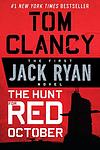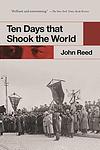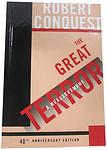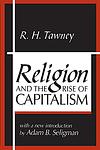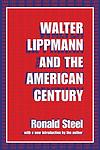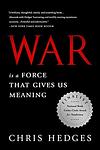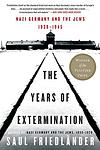The Greatest "Political, Military" Books of All Time
Click to learn how this list is calculated.
This list represents a comprehensive and trusted collection of the greatest books. Developed through a specialized algorithm, it brings together 300 'best of' book lists to form a definitive guide to the world's most acclaimed books. For those interested in how these books are chosen, additional details can be found on the rankings page.
Genres
The "Political" category of books encompasses works that explore the theory, practice, and history of government and politics. These books may cover topics such as political ideologies, political systems, political institutions, political movements, and political leaders. They may also examine the relationship between politics and other areas of society, such as economics, culture, and international relations. Political books can be both informative and thought-provoking, offering readers insights into the complexities of the political world and the challenges of governing in a democratic society.
The Military category of books encompasses a wide range of literature that focuses on the armed forces, their operations, and the individuals who serve in them. This genre includes both fiction and non-fiction works that cover topics such as military history, strategy, tactics, and personal accounts of soldiers' experiences. Military books often explore themes of bravery, sacrifice, and the impact of war on individuals and society. They provide readers with a glimpse into the world of the military and the challenges faced by those who serve their country.
Countries
Date Range
Reading Statistics
Click the button below to see how many of these books you've read!
Download
If you're interested in downloading this list as a CSV file for use in a spreadsheet application, you can easily do so by clicking the button below. Please note that to ensure a manageable file size and faster download, the CSV will include details for only the first 500 books.
Download-
1. Reflections on the Revolution in France by Edmund Burke
This book is a political pamphlet written in the 18th century, where the author criticizes the French Revolution, arguing that it has gone too far in its quest for radical change. He asserts that the revolutionaries, in their rejection of tradition and their embrace of abstract notions of liberty and equality, have overlooked the complexities of real social and political life. The author advocates for gradual, prudent reform rather than sudden, violent change and emphasizes the importance of tradition and inherited institutions.
-
2. The Hunt for Red October by Tom Clancy
This novel details the story of a high-ranking Russian submarine captain who aims to defect to the United States without sparking a war between the two nations. The American government, upon receiving information about the captain's intentions, sends its best analyst to aid in the successful defection of the captain and his crew. The novel is a thrilling tale of espionage, filled with suspense and detailed technical descriptions of military technology and procedure.
-
3. Ten Days That Shook the World by John Reed
This book provides a firsthand account of the Russian Revolution in 1917, specifically focusing on the ten days during which the Bolsheviks seized power. The author, an American journalist, presents a detailed chronicle of the events, people, and emotions during this tumultuous period. His narrative is filled with vivid descriptions and passionate portrayals of the revolutionaries, offering an intimate look into this significant historical event.
-
4. The Rise and Fall of the Third Reich by William L. Shirer
This book provides a comprehensive history of Adolf Hitler's Third Reich, from its inception to its downfall during World War II. The author, an American journalist who reported from Germany and Austria during the Nazi era, uses firsthand accounts, interviews, and Nazi documents to detail Hitler's rise to power, the mechanisms of the Nazi state, and the events leading to and during World War II, including the Holocaust. The book concludes with an analysis of why the Third Reich fell and the aftermath of its collapse.
-
5. Team of Rivals: The Political Genius of Abraham Lincoln by Doris Kearns Goodwin
This book explores the political acumen of Abraham Lincoln, focusing on how he assembled his cabinet from political adversaries, many of whom initially dismissed him for his perceived lack of experience and ungainly appearance. The narrative delves into how Lincoln used his rivals' talents to navigate the tumultuous times of the Civil War, maintaining unity and leading the nation towards the abolition of slavery. It underscores Lincoln's extraordinary ability to turn rivals into allies, demonstrating his leadership and his profound impact on American history.
-
6. The Great Terror by Robert Conquest
"The Great Terror" is a comprehensive analysis of Joseph Stalin's purges in the Soviet Union during the 1930s. The book delves into the brutal and systematic elimination of potential political rivals, intellectuals, and ordinary citizens, who were falsely accused of espionage, sabotage, or being counter-revolutionary. It provides a detailed account of the show trials, executions, and forced labor camps, shedding light on one of the darkest periods in Soviet history.
-
7. The Bookseller of Kabul by Asne Seierstad
This book provides an intimate and eye-opening look into the everyday life of an Afghan family. The narrative follows a bookseller in Kabul, who despite the oppressive Taliban regime, courageously continues his trade. The story delves into his family dynamics, the struggles of his two wives, his children's lives, and the societal norms and customs they navigate. It paints a vivid picture of life in Afghanistan, exploring the themes of love, courage, resilience, and the power of literature.
-
8. The Witness by Juan José Saer
"The Witness" is a novel that explores the life of a young European boy who is the only survivor of a shipwreck in the 16th century. He is found and raised by a tribe of Indians in South America, where he spends ten years of his life. The boy is eventually found by a band of Spanish conquistadors and returns to Europe, where he becomes a well-respected scholar. The story unfolds as the man, now in his 90s, recounts his experiences and struggles to reconcile his European identity with his decade-long immersion in the tribal culture.
-
9. Religion And The Rise Of Capitalism by R. H. Tawney
"Religion and the Rise of Capitalism" is a comprehensive exploration of the historical relationship between the development of capitalism and the evolution of religious thought, particularly Protestant Christianity. The author delves into the moral and ethical dimensions of capitalism, arguing that its growth was significantly influenced by certain religious ideas. The book also discusses how religious beliefs have shaped economic systems and societal norms, and how these, in turn, have impacted religion.
-
10. Imperial Life in the Emerald City by Rajiv Chandrasekaran
"Imperial Life in the Emerald City" provides an in-depth look at the American occupation of Iraq, focusing on the Green Zone in Baghdad, which served as the U.S. headquarters. The book reveals how the U.S. administration was ill-prepared for the task of rebuilding Iraq, and how their lack of understanding about the country and its culture led to many mistakes and blunders. The author, through his first-hand accounts and interviews, paints a picture of a surreal, insulated world within the Green Zone, cut off from the harsh realities of the war-torn country outside.
-
11. The Economic Consequences of the Peace by John Maynard Keynes
This book is a critique of the Treaty of Versailles, written by a British economist who was part of the British delegation to the peace conference. The author argues that the harsh reparations and economic measures imposed on Germany after World War I were unfair and would lead to economic instability and another war. He suggests that a more just and economically sound approach would have been to rebuild Germany and integrate it into the global economy, rather than punishing it.
-
12. The Prize: The Epic Quest for Oil, Money, and Power by Daniel Yergin
"The Prize: The Epic Quest for Oil, Money, and Power" is a comprehensive history of the global oil industry, tracing its development from the drilling of the first well in Pennsylvania to the oil crisis of the 1970s and its aftermath. The book examines the key players, political conflicts, and technological advancements that have shaped the industry, and explores the profound impact of oil on the global economy and geopolitics. It also discusses the environmental and social challenges associated with oil production and consumption.
-
13. Walter Lippmann and the American Century by Ronald Steel
This book provides an in-depth look at the life and work of Walter Lippmann, one of the most influential journalists in American history. The author explores Lippmann's role in shaping 20th century American politics and public opinion, his relationships with key political figures, and his views on democracy, liberty, and international relations. The book also examines Lippmann's personal life, including his early years, education, and family life.
-
14. War Is a Force that Gives Us Meaning by Chris Hedges
This book is a profound exploration of the allure and devastating effects of warfare, written by a war correspondent who has experienced conflicts firsthand. It delves into the intoxicating nature of war, the reasons why societies are drawn to it and how it can give a sense of purpose, albeit a destructive one. The author also discusses the psychological impacts of war on individuals and societies, and the ways in which war can distort our understanding of love, friendship, and compassion.
-
15. Rough Crossings by Simon Schama
"Rough Crossings" is a historical account of the experience of African American slaves during the American Revolution. It focuses on the British promise to grant freedom to slaves who joined their cause, and the subsequent journey of these former slaves to Nova Scotia and Sierra Leone. The book explores the complexities of this period in history, questioning the traditional narrative of the American Revolution and shedding light on the struggle for freedom and equality by African Americans.
-
16. Russia Leaves the War by George F. Kennan
"Russia Leaves the War" is a comprehensive historical analysis of the political, social, and economic factors that led to Russia's withdrawal from World War I. The book provides a detailed account of the internal struggles, international pressures, and key figures that influenced this critical decision. It also explores the impact of the Russian Revolution and the rise of the Bolsheviks on the nation's foreign policy, offering a nuanced understanding of this pivotal period in world history.
-
17. Island on Fire: The Revolt That Ended Slavery in the British Empire by Tom Zoellner
The book chronicles the 1831 slave rebellion in Jamaica, a significant event that hastened the abolition of slavery in the British Empire. The narrative details the planning and execution of the revolt, the brutal suppression by the colonial authorities, and the aftermath, including the public outrage in Britain that led to legislative reform. The book also explores the role of key figures in the uprising, providing a detailed account of this pivotal moment in history.
-
18. Ghost Wars by Steve Coll
"Ghost Wars" is an in-depth exploration of the complex history of Afghanistan from the Soviet invasion in 1979 to just before the terrorist attacks of September 11, 2001. The book provides an intricate account of the CIA's role and America's foreign policy in Afghanistan, the rise of the Taliban, and the emergence of Osama Bin Laden. It also details the numerous missed opportunities to capture or kill Bin Laden, and the failure to prevent the 9/11 attacks.
-
19. Legacy of Ashes: The History of the CIA by Tim Weiner
This book is a comprehensive history of the Central Intelligence Agency from its inception in 1947 to 2007. It provides an in-depth look at the agency's triumphs and failures, revealing a pattern of poor intelligence analysis, covert operations gone awry, and bureaucratic mismanagement. The author utilizes more than 50,000 documents, primarily from the archives of the CIA itself, and hundreds of interviews with CIA veterans, including ten Directors of Central Intelligence. It's a critical examination of the CIA, questioning its effectiveness and its role in both the Cold War and the War on Terror.
-
20. The Years of Extermination by Saul Friedlander
"The Years of Extermination" is a comprehensive historical analysis of the Holocaust, examining the genocide from 1939 to 1945. Drawing on a variety of sources, including diaries, letters, and firsthand accounts, it provides a detailed and harrowing account of the systematic extermination of the Jewish people during World War II. The book also explores the responses of various groups, including the Jewish communities in Europe, the international community, and the perpetrators themselves.
-
21. The Dead Hand: The Untold Story of the Cold War Arms Race and Its Dangerous Legacy by David Hoffman
This book provides an in-depth exploration of the Cold War arms race, focusing on the creation, development, and deployment of nuclear and biological weapons by both the United States and the Soviet Union. It also delves into the dangerous legacy these weapons have left behind, including the threat of nuclear proliferation and bioterrorism. The book combines historical analysis with first-hand accounts and interviews, offering a comprehensive and chilling examination of a critical period in world history.
-
22. Between War and Peace: The Potsdam Conference by Herbert Feis
This book provides a detailed account of the Potsdam Conference, a crucial event in world history that took place in the summer of 1945. It explores the interactions and negotiations between the three most powerful men of that time - Winston Churchill, Harry Truman, and Joseph Stalin - who were tasked with deciding the fate of post-WWII Europe. The book also delves into the political dynamics, personal conflicts, and the profound implications of the decisions made during this conference.
-
23. The Radicalism of the American Revolution by Gordon S. Wood
This book explores the American Revolution, not just as a war of independence, but as a radical shift in society and culture that transformed the American people from a monarchy-dependent society to a republic of self-governing citizens. It delves into the deep social changes that occurred, challenging the traditional view of the Revolution as a conservative rebellion, and instead presenting it as a truly radical and transformative event in history. It also details the effects of this transformation on different social classes and groups, from the elite to the common folk, highlighting how it reshaped the political, social, and economic landscape of the nation.
Reading Statistics
Click the button below to see how many of these books you've read!
Download
If you're interested in downloading this list as a CSV file for use in a spreadsheet application, you can easily do so by clicking the button below. Please note that to ensure a manageable file size and faster download, the CSV will include details for only the first 500 books.
Download
